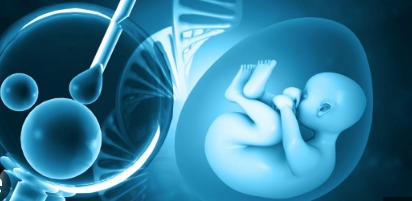
Introduction:
In vitro fertilization (IVF) is a remarkable medical procedure that has brought hope to countless individuals and couples struggling with infertility. It’s a complex and emotional journey filled with ups and downs, but it has the potential to make dreams of parenthood come true. In this post, we’ll delve into the world of IVF, discussing its process, emotional aspects, and the hope it offers.
The IVF Process:
IVF is a multi-step process that typically involves the following stages:
Ovulation Stimulation: Fertility medications are administered to stimulate the ovaries to produce multiple eggs.
Sperm Collection: A sperm sample is obtained from the male partner or a sperm donor.
Fertilization: Eggs and sperm are combined in a laboratory dish to facilitate fertilization.
Egg Retrieval: A minor surgical procedure is performed to collect mature eggs from the ovaries.
Embryo Culture: The resulting embryos are cultured for a few days, during which they develop and grow.
Embryo Transfer: One or more embryos are selected and transferred into the woman’s uterus.
Waiting and Testing: A waiting period follows, and if successful, a pregnancy test confirms whether implantation occurred.

The Emotional Rollercoaster:
The IVF journey can be emotionally challenging. Couples often face anxiety, stress, and uncertainty as they undergo multiple procedures, hormonal fluctuations, and the ever-present fear of disappointment. It’s essential for individuals and couples to prioritize self-care, seek support from loved ones, and consider counseling to manage these emotions.
The Importance of Support:
Support from friends, family, and infertility support groups can be invaluable during an IVF journey. Sharing experiences and emotions with those who understand what you’re going through can provide much-needed comfort and strength.
Success Stories:
While IVF can be emotionally draining, it has brought joy to countless families. Many individuals who faced infertility issues have gone on to become parents through IVF. These success stories serve as a beacon of hope for others who are on this path.
How to Improve Infertility by using best diet chart
Improving fertility through diet is a complex and multifaceted process. While a healthy diet can certainly play a role in enhancing fertility, it’s important to note that infertility can have various underlying causes, and dietary changes may not be a guaranteed solution for everyone.
Eat a Balanced Diet:
Consume a variety of fruits, vegetables, whole grains, lean proteins, and healthy fats.
Ensure your diet is rich in vitamins and minerals, including folate, iron, calcium, and zinc.
Maintain a Healthy Weight:
Being either overweight or underweight can affect fertility. Aim for a healthy body mass index (BMI).
Consult with a healthcare professional or a registered dietitian to determine your ideal weight and create a plan to achieve it.
Choose Complex Carbohydrates:
Opt for whole grains like brown rice, quinoa, and whole wheat over refined grains.
Avoid excessive consumption of sugary foods and refined carbohydrates, as they can lead to insulin resistance, which may affect fertility.
Prioritize Protein:
Include sources of lean protein in your diet such as poultry, fish, beans, and tofu.
Fatty fish like salmon provide essential omega-3 fatty acids, which can support fertility.
Healthy Fats:
Incorporate sources of healthy fats, like avocados, nuts, seeds, and olive oil.
Omega-3 fatty acids found in fish and flaxseed may have a positive impact on fertility.
Dairy or Dairy Alternatives:
Choose low-fat or full-fat dairy or dairy alternatives. Some studies suggest that full-fat dairy may be more beneficial for fertility than low-fat options.
Limit Caffeine and Alcohol:
High caffeine and alcohol consumption may reduce fertility. Limit both to moderate levels or avoid them altogether if possible.
Stay Hydrated:
Drink plenty of water to stay properly hydrated.
Antioxidant-Rich Foods:
Antioxidants may help protect sperm and egg cells from damage. Consume foods rich in antioxidants like berries, nuts, and colorful vegetables.
Conclusion:
In vitro fertilization is a complex and emotional journey, but it offers the promise of parenthood to those who face infertility challenges. The process may be filled with ups and downs, but the determination, support, and hope of individuals and couples make it possible to overcome the obstacles along the way. If you or someone you know is considering IVF, remember that you are not alone, and there is hope on this remarkable journey toward parenthood.

